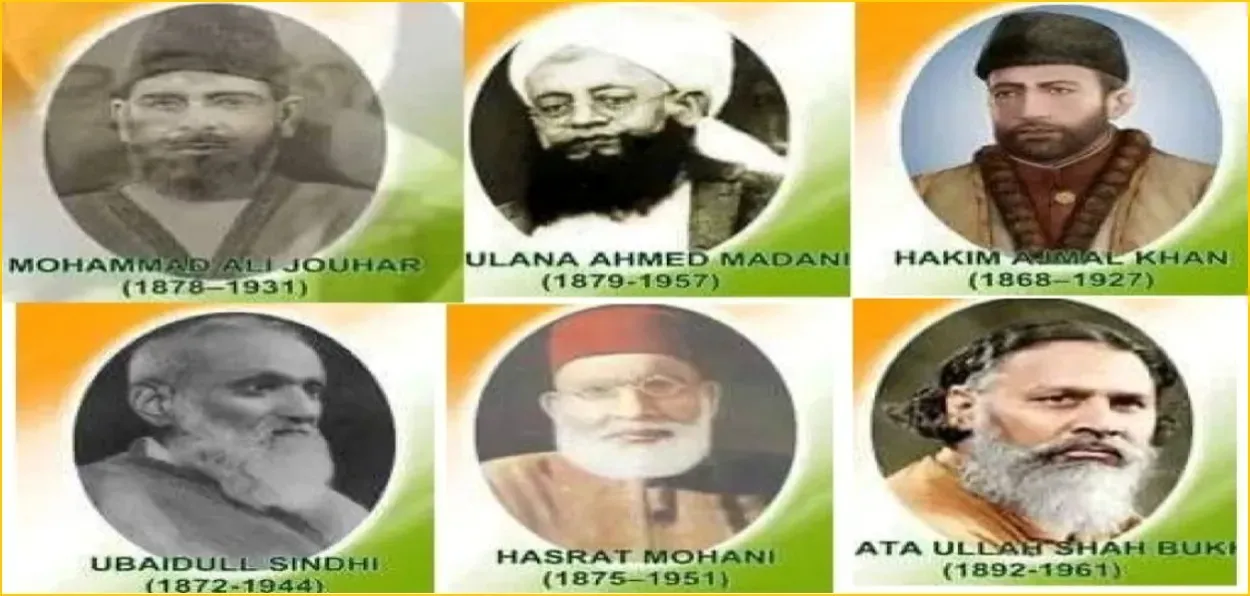
Sayyed Taleef Haider
Over the past 76 years since India gained independence, the Muslim population in the country has been steadily increasing. During this period, India has been blessed with the birth of numerous eminent scholars and mystics who have represented the nation in Islamic matters across the globe. Figures like Maulana Arshad Madani, Mahmood Madani, Maulana Wahiduddin Khan, Maulana Mufti Abu Bakr, Maulana Rabia Hasani Nadvi, Maulana Akhtar Raza Khan Azhari, Maulana Kalb Sadiq, Maulana Kalb Jawad have garnered immense support from millions of Muslims. Additionally, India has produced a multitude of distinguished scholars through its monasteries, religious schools, grand mosques, and research institutes
Upon examining the contributions of these scholars, it becomes evident that a significant portion of their efforts has been devoted to spreading messages of peace and harmony throughout India. They have consistently emphasized that India is the homeland of Muslims, where every individual is regarded as a brother. These scholars have actively discouraged religious differences and advised Muslims to avoid interfering in the religious affairs of non-Muslim brothers. This approach has played a vital role in fostering a sense of unity among Muslims and has prevented the escalation of religious disputes over the decades.
However, despite these efforts, certain contentious issues have arisen within the Muslim community in India. Debates have emerged on topics such as the practice of raising hands during prayer (Rafa-e-Yadain), the second call to prayer (Azaan-e-Saani), variations in the acceptance of hadiths, and differences in jurisprudential interpretations. These issues have, at times, given rise to the creation of sects within the Indian Muslim population. Notably, India has seen the rise of various ideological movements like Ahl-e-Hadith, Barelvi, Jamaat-e-Islami, Deobandi, Khanqahi, and Salafi, each of which has gained prominence and influence within the country's Muslim community.
It is worth noting that a significant distinction exists between Indian scholars and their Pakistani counterparts. While Indian scholars, regardless of their ideological convictions, have maintained open channels of communication with scholars holding opposing views, Pakistani scholars often face challenges and sometimes even leave the country to express their opinions freely. This can be exemplified by figures like Maulana Javed Ahmad Ghamdi and Allama Tahir-ul-Qadri, who have chosen to leave Pakistan due to the constraints on their religious discourse.
Despite differences in minor matters, Indian scholars have managed to maintain a non-violent approach to disagreements. For instance, even though there may be disagreements with scholars like Maulana Wahiduddin Khan, his books are widely studied in madrasas across India, and respected peers and Sufi leaders hold his name in high regard. A similar approach is evident in the Shia-Sunni relationship in India, where despite historical and jurisprudential differences, both sects offer prayers together sometime and scholars from both sides appear jointly on platforms during significant Muslim gatherings. This unity is a testament to the deep-rooted concern for Indian national unity, where the identity of being an Indian takes precedence over religious affiliations.
Indian society instills the value that every individual is an Indian before being identified by their religious beliefs, whether Hindu, Muslim, Sikh, Christian, or Jewish. Consequently, scholars in India, while committed to their religious convictions, are less inclined to let professional differences escalate into serious conflicts. The atmosphere of religious inclusivity in India plays a key role in shaping this attitude.
Over the past 76 years, the global Islamic community has greatly benefited from the scholarly contributions of Indian scholars. Works by luminaries such as Maulana Syed Sulaiman Nadvi, Maulana Salahuddin Abdul Rahman, Maulana Abul Kalam Azad, Maulana Aslam Jairajpuri, and Maulana Abdul Majid Daryabadi have enriched the corpus of Islamic literature in India. Moreover, the writings of Maulana Arshad-ul-Qadri and Maulana Abul Hasan Ali Nadvi (Ali Mian) have gained international acclaim. The literature produced by Khanqahs (spiritual centers) has effectively propagated the principles of peace, harmony, love, brotherhood, and tolerance among India's Muslim population over the past seven decades. Prominent Khanqahs like Khanqah-e-Kutchochha, Khanqah-e-Mahrehara, Khanqah-e-Rizviya, Khanqah-e-Badaiun, Dehlvi Khanqah, and Ajmeri Khanqah have consistently echoed these teachings.
ALSO READ: The Indian revolutionaries on foreign lands
In addition to their contributions to Islamic literature, Indian scholars have made significant strides in literature, civilization, and culture. Their impact is evident in diverse fields, including poetry, calligraphy, Sufi music, and Majlis Miraasi (traditional poem telling). Through their multifaceted endeavours, the Indian Ulema (scholars) serve as a global model for peaceful coexistence with individuals from differing religious backgrounds. They demonstrate how it is possible to harmoniously coexist with the religious majority while maintaining one's distinct religious and national identities.
